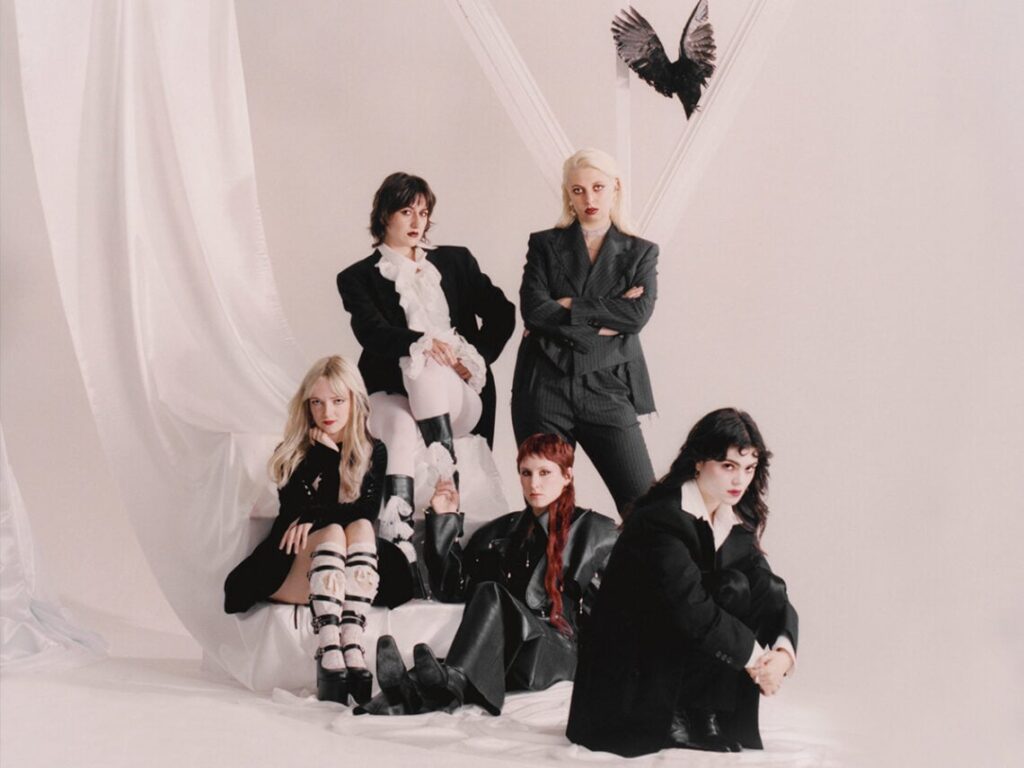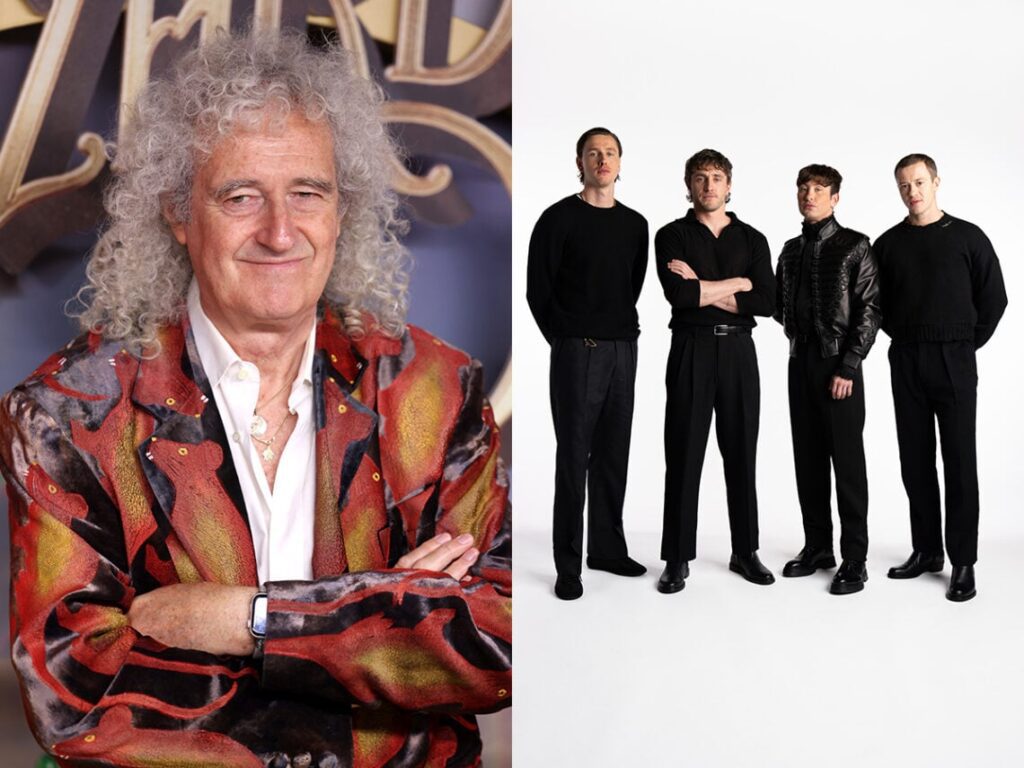‘Caesar on a TV Screen’: how The Last Dinner Party channelled Mick Jagger
 Posted On
Posted On
(Credits: Cal McIntyre)
2024 is the year of The Last Dinner Party’s dominance. They boast a heady mix of pop, rock, and indie sounds under their belt, citing inspirations in everything from Queen to Nick Cave and Florence + the Machine. Their whole vibe is edgy, electrifying, and bold; they continue on this trajectory with ‘Caesar on a TV Screen’, honouring another giant of rock in the process.
Released in January this year, the song is appropriately dramatic and theatrical, given its Shakespearean source of inspiration. But at its heart is something far deeper – flamboyance is offset by an inherent petulance, confidence masks a sense of insecurity, and power is a façade over creeping vulnerability.
This is reflected in the meaning behind the lyrics, which lead singer Abigail Morris explained in an interview with Apple Music. She said the idea spawned from her boyfriend lending her a suit to wear. “Getting to have his suit, I was like, ‘Now I am a man in a band’. It’s this very specific sensuality and power you feel when you’re dressing as a man.”
Later, the characteristics of this embodied man came to life, like “a Mick Jagger or a Caligula”, Morris said. “I thought it would be fun to write a song from the perspective of feeling like a king, but you are only like that because you’re so vulnerable and so desperate to be loved and quite weak and afraid and childlike.”
The process of forming this imagery is evident, especially with lyrics in the chorus, which lament that with the price of fame, “I’ll have everything I want / Anyone and everyone will like me then / Everyone will like me then”.
It’s easy to see where the parallels to The Rolling Stones’ esteemed Mick Jagger emerge. He is this exact stage persona – exuberant, supercharged, and all-consuming. The other side of the coin – a Jagger who is quiet, anxious, and vulnerable – is much harder to conjure, but it must exist, right? He’s human, after all. Is this what The Last Dinner Party are trying to convey?
Without knowing either party – no pun intended – it is, of course, challenging to say, but the images of power and sex the song evokes are undeniably interesting. There’s a twisted gender-bending element where you could quite plausibly see Freddie Mercury or, indeed, Mick Jagger flouncing about singing these words just as much as The Last Dinner Party. That ultimately speaks to the meaning around subverting hierarchy and assuming a persona, which the musicianship of the song helps to emphasise through Morris’ rich, rolling vocals and the rousing guitars.
For those who have never listened to The Last Dinner Party, ‘Caesar on a TV Screen’ is a powerful introduction to the sound of a band who are set for real stardom over the course of the next few years. The implications of this track, reflecting on the nature of power as an all-female/non-binary rock band in a heavily male-dominated industry, ruminate on the conflicting emotions and personae that the group must take on as they progress into the next stages of fame, competing for the adoration of fans without bending to a patriarchal agenda.
If this is their way of rebelling against these norms and laying out their own case for domination, then it’s fair to say that they are a force to be reckoned with. Jagger would no doubt be proud.
[embedded content]
Related Topics


